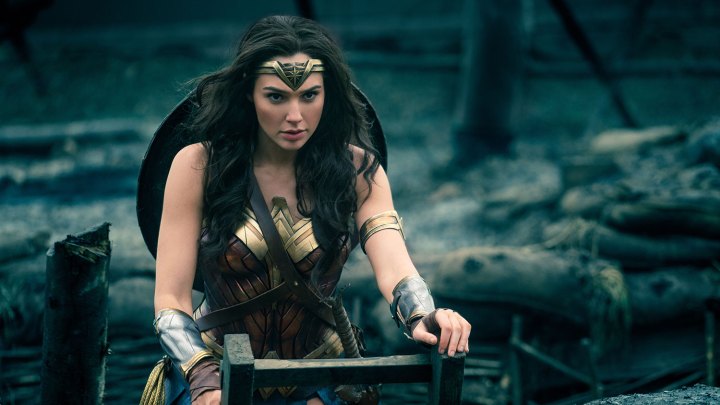This year, more than five million fewer people tuned in to watch the Academy Awards ceremony than a decade prior — the lowest ratings in the history of the svelte golden statue. No wonder ABC, which holds the rights to the ceremony for the next decade, reportedly sent a team of executives to meet with the leaders of the Academy of Motion Picture Arts and Sciences (AKA the Academy), pushing for new ways to bring in more viewers.
To claw back viewers, the Academy announced a new “popular” film category, which will highlight films like Black Panther, Wonder Woman, and presumably any similar popcorn flicks. In other words, the sorts of top box-office performers that typically don’t garner critical consideration for Academy members. The new category, slated to debut at February’s ceremony, has many industry insiders reeling, and many film buffs asking questions.
What will be considered popular enough to compete in the category? How exactly do you define “popular?” Will the fact that the biggest popcorn flicks of the year could get coveted statues water down the very brand itself?
But my biggest concern is an even simpler one. I’m worried the Oscars could soon look a lot like another major media awards ceremony that has been all but ruined by its kowtowing to popular culture: The Grammys.
Popularity over quality
The move to include popular movies alongside other categories feels like the first step down the same slippery slope that led the Grammys to create separate categories for Country, Folk, Americana, and American Roots music, or to partition modern black music into Rap, Urban Contemporary, and R&B — with little to no obvious distinctions between categories.
Dividing similar artwork into so many disparate segments devalues overall criticism.
The Grammys have been broken – and frankly, nearly unwatchable — for decades. In an op-ed penned in early 2018, Washington Post music critic Chris Richards went so far as to say that only three “Album of the Year” picks have actually been valid in the past 38 years of the awards.
No one would argue that any award ceremony is completely objective, but at some point, dividing similar artwork into so many disparate segments devalues the overall criticism of the artwork itself.
What’s more, going out of your way to highlight popular things for popularity’s sake devalues the award, and that’s bad for ratings, too. Transitioning into a popularity contest hasn’t helped the Grammys, which has seen a steady decline in viewership in recent years, just like the Oscars. This seems like something an Academy member should have pointed out to the ABC executives so keen on ad sales and eyeballs.

Then again, those who broadcast awards ceremonies have become so infatuated with popularity, industry clout, and product sales, it often feels as though nobody in a suit is paying attention to the artwork itself.
Perhaps more importantly, no one in the ABC boardroom seems to be considering the significant shifts we’ve seen in the way media is made and consumed in 2018. Declining ratings almost certainly run in parallel with decreased cable subscribers, the rise of streaming, and the fact that Hollywood and the industry at large no longer have such a stranglehold on fame in the social media and YouTube era.
A better Academy
It truly is something that in the year Black Panther, a movie made just about entirely by and with black people, grosses $700 million, the Academy's reaction is, "We need to invent something separate…but equal."
— Mark Harris (@MarkHarrisNYC) August 8, 2018
It’s clear that the Oscars, like the Grammys, have a problem with diversity and inclusion, both in terms of their actual voting bodies and the content they highlight. But the best way to solve these issues is to work harder to build a voting populace of diverse experts, rather than to simply focus on the bottom line. Perhaps then more viewers would actually tune into the event, as it would showcase a more accurate portrait of the industry – and the country — at large.
If the “popular” category does make it on the ballot, one thing’s for sure: The Academy of Motion Pictures should be very concerned about what gets nominated, and how it compares to the overall Best Picture choices, or they may have a Grammys-level problem. As it stands today, even a cursory comparison of music critics’ year-end lists compared to those who win golden gramophones will leave any serious music lover laughing (or crying).
Take this years’ Grammy awards as evidence: Did anyone besides those counting their cash actually think Bruno Mars’ 24K Magic was a better album than Lorde’s Melodrama, Jay-Z’s 4:44, Kendrick Lamar’s DAMN., or Childish Gambino’s Awaken My Love? Real critics sure don’t think so. After its release in late 2016, 24K Magic didn’t even make the year-end top 10 lists in Rolling Stone, Pitchfork, or Digital Trends, for that matter, among many others.

While there are always some qualms about what gets nominated for Best Picture at the Oscars, you can’t level nearly the same criticism at the most recent Best Picture nominees — films like The Shape of Water, Dunkirk, The Post, or Three Billboards Outside Ebbing, Missouri. But with the inclusion of the Best Popular Movie category, we soon may be able to.
Does a movie deserve equal consideration in the winners’ circle just for putting asses in seats? If the Academy really thinks so, it won’t be long before it has a tough time convincing winners that its once-coveted golden statues are worth anything more than a People’s Choice Award.





